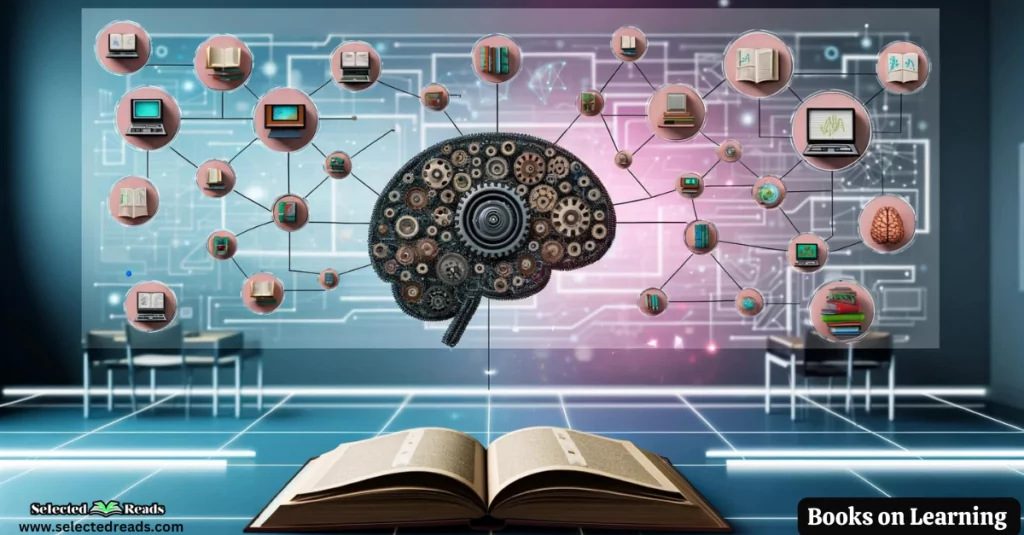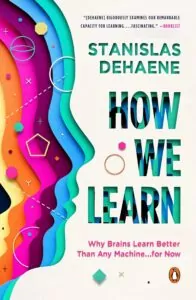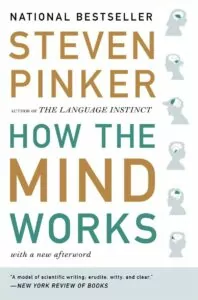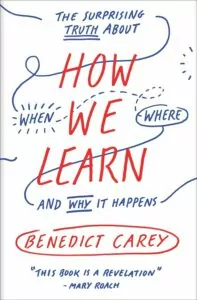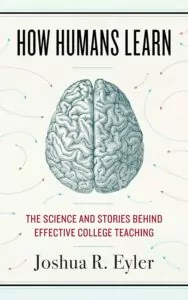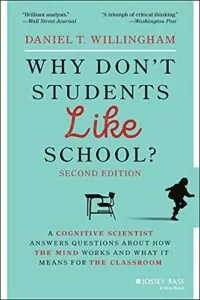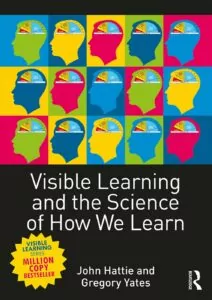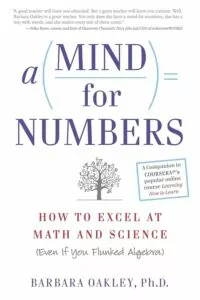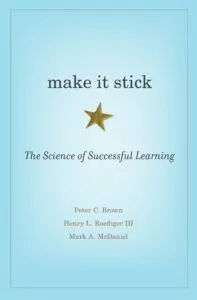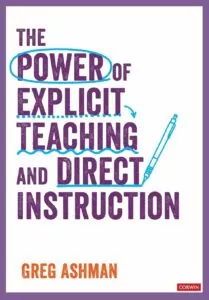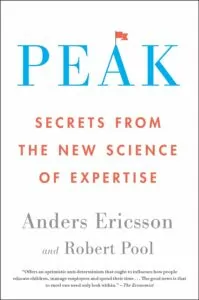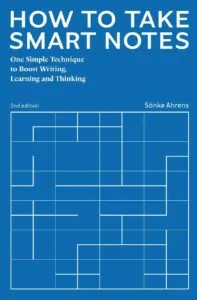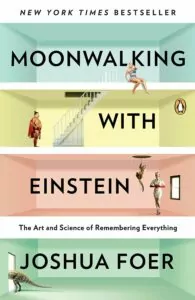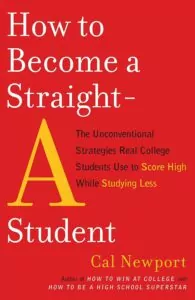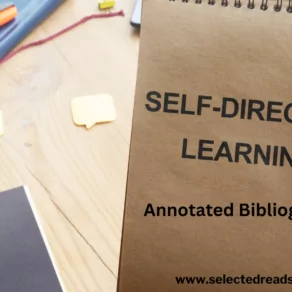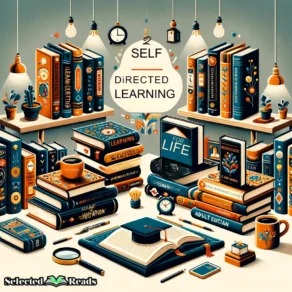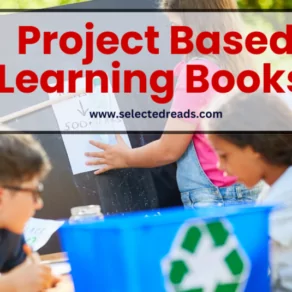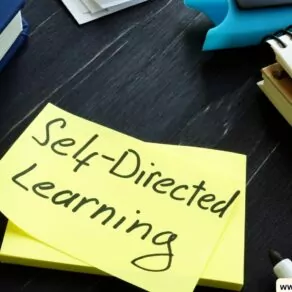Books on learning are the topic of our blog post today!
In the journey through my PhD program, one gem from my supervisor became my lifelong mantra: mastering the art of learning equates unlocking an unstoppable version of yourself. Those words still reverberate in my mind, and they’ve shaped my approach to acquiring new skills—so much so that when my mom fell into a coma, I took it upon myself to learn the specialized care techniques nurses use, becoming her primary caregiver for the past four years.
Being adept at learning isn’t just about academic success; it’s a transformative skill that turns you into a perpetual learning machine. It’s not just about accumulating facts; it’s about honing the meta-skills to efficiently understand new topics. There are a myriad of methods and meta-cognitive tactics that can supercharge this skill.
And if you’re looking to dive into this transformative journey, then these best books on learning will serve as invaluable guides. Each one offers potent insights to arm you with the meta-skills you’ll need to conquer any subject matter. I invite you to check them out and share with us if you have other suggestions you like!
Books on Learning
Here are our top picks for books on learning:
1. How We Learn: Why Brains Learn Better Than Any Machine, by Stanislas Dehaene
Stanislas Dehaene takes us on a cross-disciplinary journey to explain how the human brain outpaces any machine when it comes to learning. Forget artificial intelligence, our own neural network is a learning marvel, capable of reprogramming itself to adapt and acquire new knowledge.
Dehaene explores the biological foundations that enable us to learn so efficiently and discusses how these processes can be harnessed for education. This book serves as a toolkit for anyone interested in optimizing learning methods, whether you’re a teacher planning your next lesson or just someone keen on lifelong learning.
2. How the Mind Works, by Steven Pinker
Steven Pinker’s Pulitzer Prize finalist book delves deep into the human mind, covering topics from emotion and morality to cognitive functions. It’s a blend of cognitive science and evolutionary biology, aiming to offer a holistic understanding of why we think, feel, and behave the way we do. For educators and parents, this book is a fascinating read that provides insights into the complexities of mental life, allowing a better understanding of the learners they interact with.
3. How We Learn: The Surprising Truth About When, Where, and Why It Happens, by Benedict Carey
Benedict Carey challenges conventional wisdom about learning and memory, shedding light on how we’ve been doing it all wrong—or at least inefficiently. He questions the traditional methods of sitting in a quiet room, focusing intently, and repetition as the keys to effective learning.
Instead, Carey advocates for leveraging natural processes like forgetting, sleeping, and even daydreaming to improve information retention. From giving exams on the first day to mixing up study subjects, the book is packed with counterintuitive strategies backed by solid research. If you’re tired of the traditional grind associated with learning, this book offers a fresh perspective that can make learning less of a chore and more a part of our daily lives.
4. How Humans Learn: The Science and Stories behind Effective College Teaching, by Joshua R. Eyler
Joshua R. Eyler takes educators on a scientific expedition to understand the various ways students learn. Through insights gleaned from developmental psychology, anthropology, and cognitive neuroscience, Eyler identifies five core elements—curiosity, sociality, emotion, authenticity, and failure—that influence learning. Backed by practical classroom observations, this book helps teachers hone their strategies to align with how the human brain naturally learns. As someone who’s both taught and done educational research, I find Eyler’s approach a refreshing way to merge theory with practical teaching experience.
5. Why Don’t Students Like School? by Daniel T. Willingham
Daniel T. Willingham delves into the cognitive science of learning, offering actionable teaching techniques based on how our brains work. Why don’t students like school? Maybe because traditional teaching methods don’t always align with how we naturally absorb information.
Willingham addresses common classroom questions and misconceptions, such as the ineffective focus on “thinking skills” devoid of factual knowledge. This book is a godsend for educators who want to apply cognitive science principles to create lasting and engaging learning experiences.
6. Visible Learning and the Science of How We Learn, by John Hattie
John Hattie teams up with cognitive psychologist Greg Yates to extend the original Visible Learning project into a holistic framework that marries educational research with cognitive science. This book uncovers what actually works to improve learning in schools, based on empirical evidence rather than popular trends or political interests.
It’s broken down into three sections—learning within classrooms, foundational cognitive aspects, and self-awareness—which allow for both comprehensive reading and quick reference. For educators like me who are deeply interested in data-driven methods, this book is a treasure trove. It offers up-to-date research findings and practical applications, covering a wide array of topics from teacher-student relationships to cognitive load theory.
7. A Mind for Numbers: How to Excel at Math and Science, by Barbara Oakley
Barbara Oakley’s book is a testament to the idea that it’s never too late to improve in subjects like math and science. It provides actionable insights into how to approach these often intimidating subjects creatively, rather than just analytically.
Oakley speaks from experience, having transitioned from struggling in high school to mastering complex fields through a change in her learning approach. The book makes a compelling case that focusing solely on a problem until you solve it isn’t the most effective way to learn. Instead, taking breaks and letting your brain wander can result in better problem-solving skills.
8. Make It Stick: The Science of Successful Learning, by Peter C. Brown
“Make It Stick” takes a sledgehammer to many conventional beliefs about learning. It challenges the notion that making learning “easy” is effective. Instead, the book suggests that introducing challenges and delays in practice can result in more robust learning.
From my vantage point, this is particularly relevant in the age of educational technology where the temptation for quick, easy answers is always a click away. While educational technology can offer many advantages, it’s critical to remember that learning isn’t always meant to be easy or instantaneous. Struggle is part of the process, and this book gives you the research to back that up.
9. The Power of Explicit Teaching and Direct Instruction, by Greg Ashman
Greg Ashman’s book provides a thoughtful exploration into the effectiveness of direct instruction and explicit teaching, backed by cognitive psychology research. It’s a book that could prove invaluable for educators who are maybe a little skeptical about traditional teaching methods. Ashman argues that these methods, when applied correctly, can lead to meaningful learning outcomes. He offers foundational principles and translates these into actionable classroom practices.
10. Peak: Secrets from the New Science of Expertise, by Anders Ericsson and Robert Pool
If you’ve ever thought that mastery of a particular skill is reserved for the “naturally gifted,” Anders Ericsson’s “Peak” is the antidote to that belief. The book leans heavily into the idea that expertise is largely the result of deliberate practice, not innate talent. Ericsson’s research is a game-changer, suggesting that improvements can be made in virtually any skill set, given the right approach.
In a classroom or educational setting, this is golden knowledge. It’s the scientific backing for a growth mindset, and it supports the notion that educational technology can be used as a targeted tool for skill improvement, not just a fancy add-on.
11. How to Take Smart Notes: One Simple Technique to Boost Writing, Learning and Thinking, by Sönke Ahrens
Ever been frustrated by how disorganized your notes can get? “How to Take Smart Notes” is a sanity-saver. It talks about the Zettelkasten system, a note-taking technique designed to maximize organization and retention. In my experience, the best ed tech tools are the ones that encourage smart, organized thinking and help to reinforce learning over time.
They’re a lot like a Zettelkasten: a system you can rely on to store and connect ideas, freeing you up to do the deep thinking. This book resonates because it speaks to foundational practices that enhance learning, and it’s these foundational practices that we should be aiming to support when we bring technology into educational spaces.
12. Moonwalking with Einstein: The Art and Science of Remembering Everything, by Joshua Foer
In “Moonwalking with Einstein,” Joshua Foer embarks on a quest to upgrade his memory, diving into techniques that date back to antiquity. The journey he describes is fascinating, proving that the memory isn’t a static entity but something we can train and improve. This challenges the perception of memory as a purely innate faculty and opens the door for methods and even ed tech tools that could train the brain similarly. I’ve come across apps and websites that use techniques like spaced repetition, and this book provides the scientific and anecdotal foundation for why such methods can be effective.
13. How to Become a Straight-A Student, by Cal Newport
Cal Newport demystifies the academic excellence puzzle by showing that top grades don’t require endless hours of studying but rather smarter studying. Newport’s strategy aligns with the kind of student-centric and self-directed approach I’ve always encouraged, even when reviewing or recommending educational technology. It’s not just about hard work; it’s about smart work.
What Newport articulates well is that method matters, perhaps even more than the time invested. This correlates with what I’ve seen in my research and practice: the most effective use of educational technology is strategic and deliberate, focusing on learning techniques that are proven to be effective.
Concluding thoughts
From understanding the neuroscience behind mastering new skills, to breaking down the art of effective note-taking, these best books on learning offer a holistic view of how to become an unstoppable learner. They’ll not only help you excel in an academic setting but will arm you with the life skills to tackle any challenge head-on, much like my own journey with caring for my mom.



